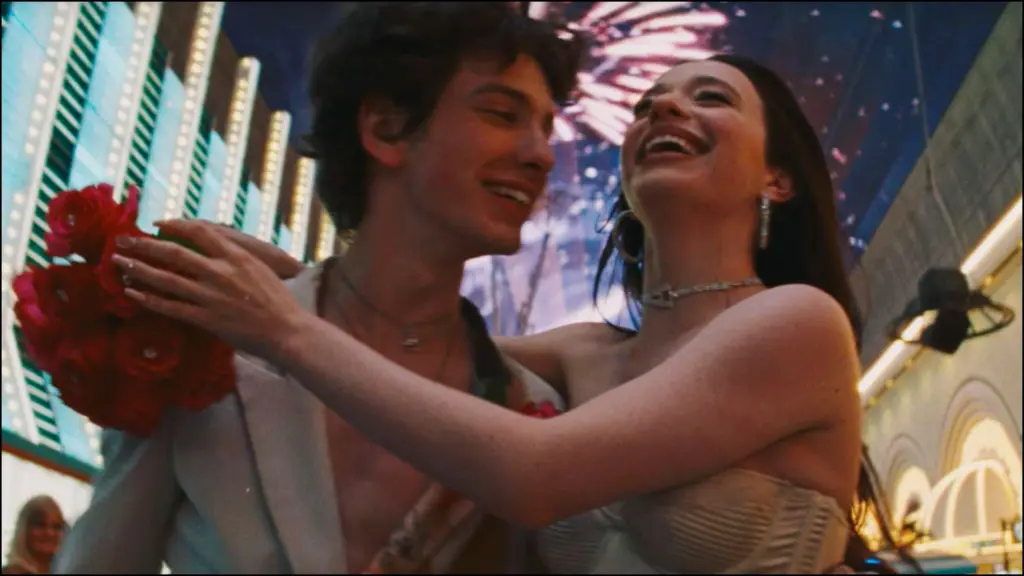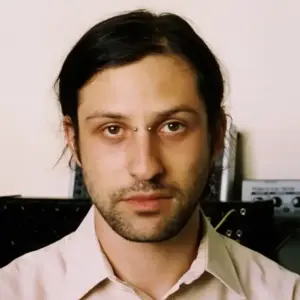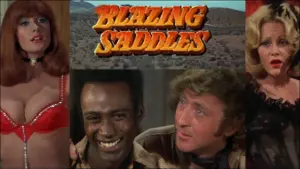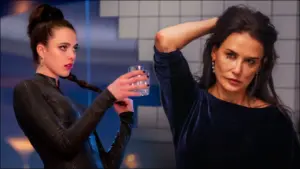Writer/director (and editor, and producer) Sean Baker, long known for his humanizing portraits of sex workers and other marginalized groups, has honed his treatment of those subjects for more than two decades (with Tangerine and The Florida Project among standouts). The dedication shows. With his eighth and newest film Anora, Baker has delivered something so nuanced, powerful, incisive, beautiful and assured, that it should qualify as not only one of the best films of the year but of the decade.
Anora stars Mikey Madison as Ani, a young dancer of Russian descent working at a strip club in Brooklyn. When new high roller Vanya (Mark Eydelshteyn) asks for a girl who speaks his native Russian, the club owner sends for Ani and the two quickly hit it off. Vanya, a gawky youth and son of a Russian oligarch, invites Ani back to his stately mansion and offers to pay for a week of her time. The week turns into a whirlwind romance, and the two elope to Las Vegas.
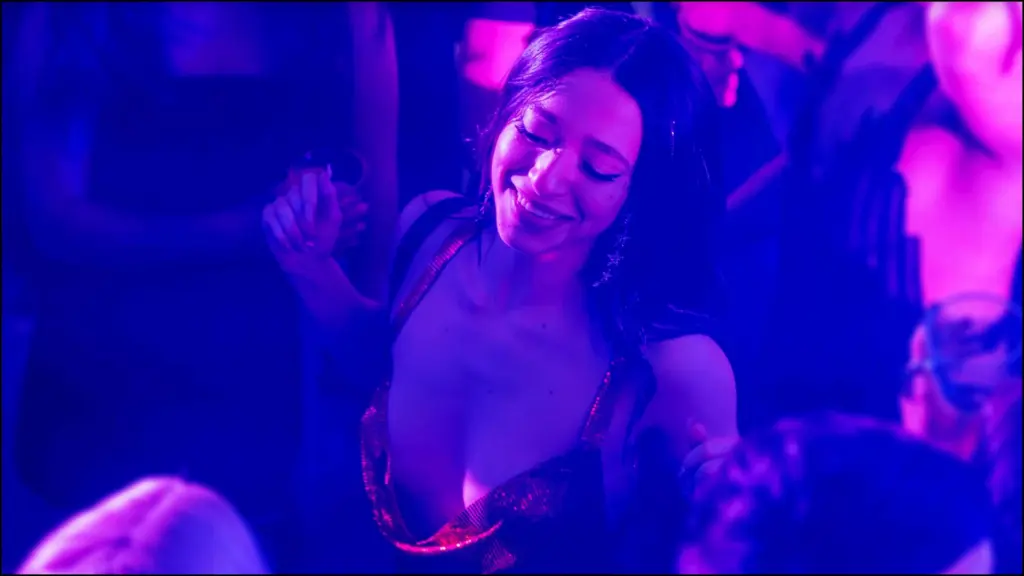
The first third of Anora plays out like an impressionistic rom-com – a lavish retelling of Pretty Woman (1990), brimming with youthful intensity and hallucinogenic bacchanals that feel more collage than montage – but remains somehow grounded, like John Cassavetes on Adderall. Though the telling is near-sensory overload, the casual extravagance of Vanya’s full-tilt revelry reinforces the class divide at play.
Their romance is so thrilling and ecstatic that, in spite of its vérité styling, it is almost possible to believe, as Ani must, that it can last – a Cinderella story for modern times. This first leg is even capped by a terrific helicopter shot (a real one), pulling back from Vanya’s capacious digs and a view of the water. A faux ending for a different kind of movie.
When Vanya’s parents learn of his folly, however, reality comes crashing down. From there, in contrast to the opening’s condensed week of thrills, the montage screeches to a halt as a trio of Russian and Armenian henchman try to subdue Ani and annul the marriage – a nonstop ride of hilarity and anxiety which includes an unforgettable 28-minute sequence shot in real time. While every moment is elaborately choreographed, it maintains the kinetic and heart-stopping spontaneity of documentary filmmaking. The result is nothing short of magical.
Anora’s second mode is reminiscent of the Safdie brothers’ recent efforts, an endless rollercoaster of bad news, but with a vivacity that mitigates what could otherwise become sinister. Every character onscreen is an entire human, with a lifetime of behavioral tics and touches that make each frame come alive.

As Vanya flees and Ani is left to contend with his father’s men, a fascinating picture begins to develop. In Vanya’s juvenile rebellion against his parents, Ani and the henchman are pitted against each other in a kind of proxy struggle; and yet as players in that struggle they all share more with each other in the way of class and breeding than they do with the figures they represent. The push and pull of these shifting allegiances is electric — in turns sorrowful, absurd, and endlessly funny.
Baker has cast an eminently believable team, many of whom must command two, sometimes three languages in a given scene. Yet the texture of the dialogue and staging never for a moment loses fluidity.
The performances verge on heroic; as an ensemble they are a revelation. As Ani, Madison gives a turn that warrants an entire career. Scrappy, implacable, endearing, when the big moments come she will shatter your heart. Baker wrote the role for her, and Madison has made it into something iconic. Eydelshteyn plays in his comfort zone, but is uniquely convincing for it as a spoiled, irreverent, incredibly charming brat. When the wheels come off, as you know they will, it is all the more disappointing, and his descent into puerile narcissism is devastating.
But in many ways, Anora is brought to life by its bit-players-turned-superstars, the henchmen. Karren Karagulian, a frequent collaborator of Baker’s, is magnetic as ringleader Toros. Explosive and sympathetic, he drives the second half of the film, and for all his indelicacy he inspires nothing but compassion, from steel-crunching tow truck debacles to the most memorable onscreen baptism since The Godfather. His right-hand man Garnick, played by Armenian comedian Vache Tovmasyan, is pitch-perfect as the well-meaning dunce. A reluctant enforcer, he is a constant foil to the chaos around him and a linchpin to the group’s dynamic.
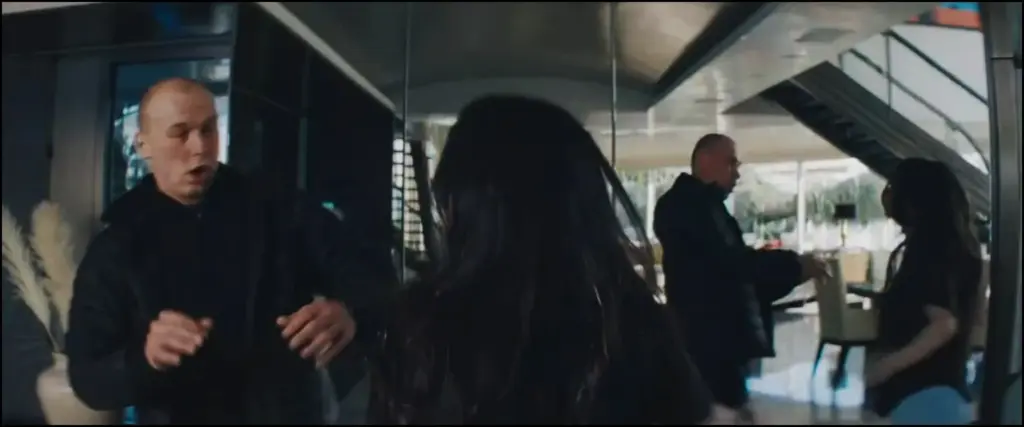
Perhaps the most difficult part is left to Yuriy Borisov as Igor, a Russian small-timer who Garnick asks to lend a hand. His growing role is surreptitious; but his silent identification with Ani matures until it becomes an epiphany. Borisov is stolid but spellbinding. With the most understated performance of all, he is saddled with numerous subtleties that could so easily go awry and ruin the delicate balance. He deftly navigates those pitfalls with pathos, until he finds himself at the heart of the film.
Anora is littered with moments that in lesser hands would devolve into schmaltz, or didactic sermonizing to undercut the humanity of its characters. Significant sequences in the latter half become so attenuated they threaten to collapse. But just when you think that Baker has lost the plot, he takes two more turns and lands somewhere simultaneously unexpected and essential.
Anora is hilarious and heartbreaking, full of humanity and full of life. A profound achievement.

